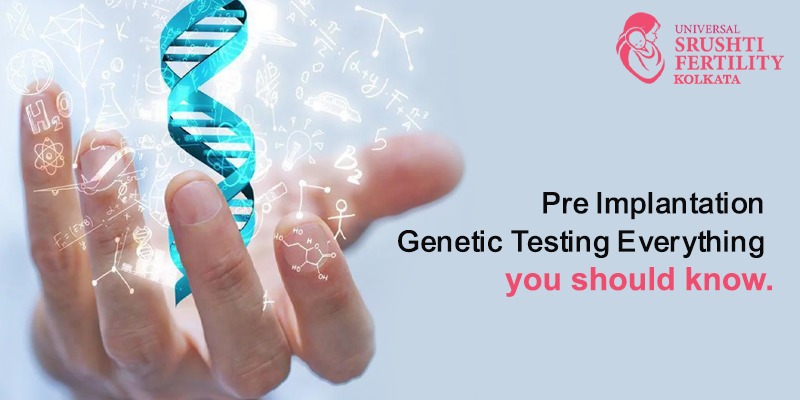
Pre Implantation Genetic Testing – Everything you should know.
The embryo transfer is the long-awaited final stage in the process of IVF. As an intended parent, you can use preimplantation genetic screening (PGS), also known as preimplantation genetic testing, to screen your viable embryos before the embryo transfer procedure. This helps identify the quality of embryos or if they are genetically abnormal. Most miscarriages occur because of the abnormality of embryos. So, it also rules out the possibility of miscarriage to much extent.
What is Pre Implantation Genetic Testing?
The procedure of determining the number of chromosomes present in each selected embryo is known as PGS/PGT-A. Aneuploidy, or abnormal chromosomal counts, is a major source of difficulty throughout pregnancy and birth. A typical embryo contains 46 chromosomes; having more or fewer chromosomes can have a substantial impact on your chances of conceiving and can have a serious impact on the child born.
Why Pre Implantation Genetic Testing important?
Your fertility specialist can use PGS to confirm that the embryos chosen for transfer have a healthy number of chromosomes, preventing anomalies that could affect the pregnancy. When an embryo has an incorrect number of chromosomes, it can hinder implantation, result in pregnancy loss, or can cause serious health concerns in the child born, all of which can be very challenging for intended parents who are undergoing IVF. To rule out all this, PGS is important.
Advantages of PGS
- Increase chances of a successful pregnancy
The purpose of PGS is to increase the chances that the embryo(s) you choose will result in a successful, healthy pregnancy. PGS testing minimizes the chance of miscarriage, shortens the time it takes to get pregnant, and eliminates the need for several embryo transfers.
- Prevent unknown anomalies from being passed down to the baby.
PGS checks for chromosomal anomalies, such as the number and position, rather than specific disorders. Your fertility doctor can pick chromosomally normal embryos and rule out those that might prevent a safe birth by Performing PGS testing. Embryos that might look perfect can also be not fit chromosomally. Only PGS testing could identify the chromosomally perfect embryos.
- Could help in recurrent miscarriages or failed IVF cycles
As with PGS testing, healthy embryos could be selected there is a low risk of miscarriage and greater chances of implantation. Chances of successful IVF are increased to 80% with PGS.
Bottom line
Pre-implantation Genetic testing provides you peace of mind about the health of your unborn child. The prognosis for a good result is excellent, and the embryo test is useful for couples or people who are aware of an inherited genetic condition and want to avoid passing it on to future children or for the patients who have undergone recurrent miscarriages or failed the IVF cycle. However, it is the best way to ensure the health of your child even before the child is born
